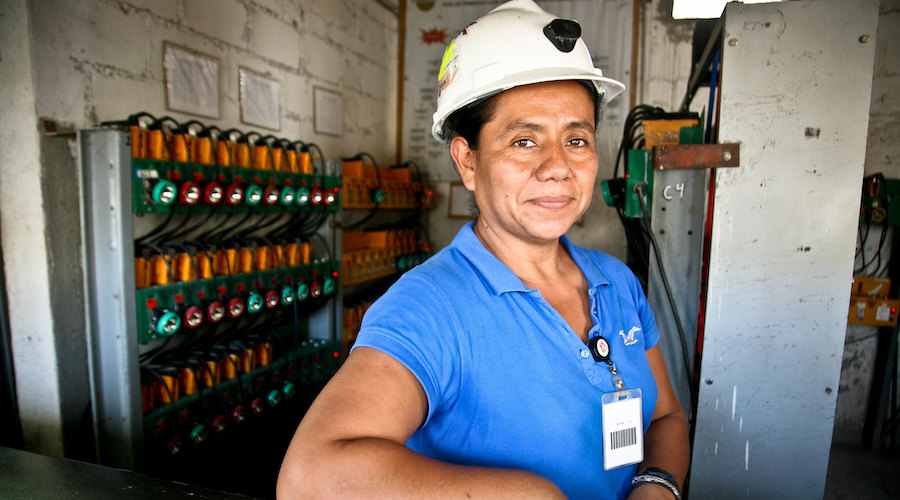
The Forum’s research has also shown that the lack of a gender-conscious regulatory framework leads to failures in eliminating health hazards and risks associated with gender-based violence that women in the informal workforce and mine-hosting communities face.
“Similarly, women’s roles and rights as community members go unnoticed within the frameworks regulating environmental and social impact assessments, environmental management guidelines, or impact benefit agreements,” the document reads. “This often results in women receiving only a minimal share of the benefits of the mining sector while being disproportionately affected by its environmental, social, economic, and cultural impacts.”
Legislative frameworks often fail to include measures to promote women’s participation in the formal mining workforce
Given this context, the report Gender in Mining Governance: Opportunities for Policymakers offers specific policy options such as introducing human rights standards into national laws, ensuring that mining codes and laws do not discriminate against women and are inclusive of everyone, and creating action plans that address gender equality in the mining sector.
“When and if a country already has an action plan to achieve a sustainable mining sector (or is preparing one), another good strategy could be to fully integrate targets, activities, and indicators on gender equality and women’s economic and social empowerment in such plans,” the report suggests. “Alternatively, the mining sector can be dealt as a stand-alone chapter in gender equality national action plans. Independent of the strategy, governments are advised to make sure that women’s voices are heard.”
How to foster women’s participation
The proposal also presents other options to foster women’s participation in the mining industry such as creating tax incentives for mining companies that apply for gender-responsive programs and making sure that both the public and the private sector collect, track, and analyze gender-disaggregated data, particularly on occupational outlook and community involvement, a work that should start during licencing processes.
The report proposes integrating gender into the impact assessment process
Another idea is to integrate gender into the impact assessment process, taking into account that the introduction of a mining operation near a community can result in a series of economic, social, and environmental changes that affect men and women differently, from not benefiting from the financial gains of resettlement requests to increased risk of exposure to gender-based violence.
Promoting equality in supply chains is also a key aspect of the report, as experience has shown that even though local content policies provide opportunities for community members who are willing to be a part of the mining supply chains, women are often excluded from these local supply chains mostly due to entrenched gender inequalities that limit their access to resources, including land, equipment, and finances.
“Governments are advised to explicitly address this form of discrimination in any local content policies and make sure that local content laws are sensitive to the plight of women as a marginalized segment of society. Some measures that could bolster women’s access to local content policies could be, amongst others, quotas or support programs targeting women entrepreneurs,” the paper states.




